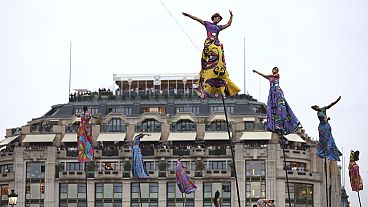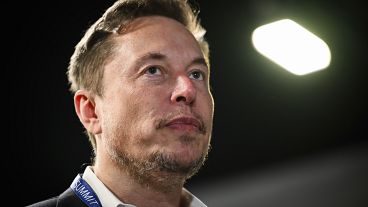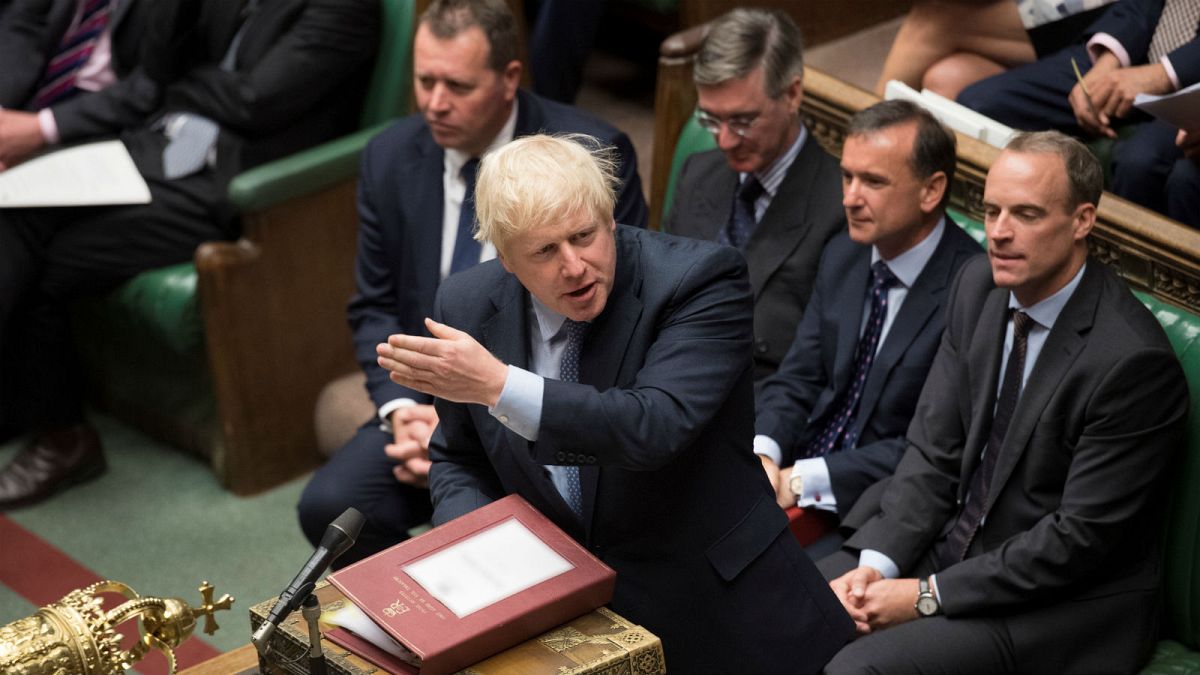Parliament will be prorogued later on Monday ahead of Brexit deadline.
Britain's Prime Minister Boris Johnson took to the pulpit in the House of Commons late on Monday evening once again calling for lawmakers to back a snap election, having his bid rejected just days after his first attempt failed.
In total 293 MPs of 650 voted for prime minister's motion for an early poll — far short of the number needed. The motion needs to be backed by two-thirds of the MPs to be passed.
Parliament was then prorogued (suspended) just before 2 am BST (3 am CEST) on Tuesday and is set to reopen on October 14.
A group of Labour backbench MPs protested the move, holding up signs that said "silenced" in front of Speaker John Bercow.
Johnson, fresh from a trip to Dublin where he met with his Irish counterpart Taoiseach Leo Varadkar, arrived in the House of Commons at around 11.30 pm CEST, and said that an "election is the only way to break the deadlock in the House."
"I don't want an election," he reiterated, taunting Labour leader Jeremy Corbyn by describing him as "the first leader of the opposition in the history of our country to show his confidence in Her Majesty's government by declining the opportunity to have an election."
Lawmakers rejected Johnson's call for anticipated elections last Wednesday with 298 votes in favour and 56 against.
Grieve motion passes
It came after MPs clashed in a dramatic night in the House of Commons that saw the resignation of the speaker and allegations of a plot inside No 10 Downing Street to suspend parliament and force a no-deal Brexit.
Independent MP Dominic Grieve named nine civil servants - among them Boris Johnson's chief advisor Dominic Cummings - that he wanted to hand over text messages, emails and memos relating to the decision to prorogue parliament until October 14.
Read more: Who is Johnson’s advisor Dominic Cummings, the man 'running the country'?
In the first of two scheduled emergency debates of the night, Grieve said that civil servants had "got together within government to try to ensure that this house could be prevented from taking action to prevent a no-deal Brexit."
Grieve argued that "some of the motives for the prorogation of parliament had now emerged" and that although Downing Street claimed on August 23 that it had not considered the move, "the matter had been under deliberation 10 days previous."
Michael Gove, Chancellor of the Duchy of Lancaster, said that the move was "a fishing expedition" that would see civil servants forced to hand over private communications and would be in breach of data protection legislation.
But MPs disagreed, voting by 311 votes to 302 to force the government to reveal the information.
The government said that it is "disappointed that this Humble Address has passed."
"The Government is committed to sharing appropriate information with Parliament, but we must balance this obligation with the broader public interest, our legal duties and the assurance that Ministers can receive full and frank advice that will remain confidential.
"The scope of the information requested in the Humble Address is disproportionate and unprecedented. We will consider the implications of this vote and respond in due course," it added.
Rule of law motion passes
Earlier, Speaker John Bercow announced that he would stand down either at the next election or on October 31, whichever comes sooner.
After oral questions to Gavin Williamson, education minister, on education funding earlier Monday, MPs were due to move to Brexit until the surprise statement by Bercow.
Following a slew of tributes to the speaker, the motion under Standing Order 24 (SO24) was brought by Grieve and allowed by Bercow after an angry exchange with a Conservative MP who yelled: "No" repeatedly. The speaker shouted: "You can like it or lump it!"
Labour leader Jeremy Corbyn then made an application for a debate under SO24 to discuss whether Johnson would be legally required to obey the bill requiring him to request a Brexit extension.
It came after Johnson said he would rather be "dead in a ditch" than ask the EU for more time.
"I hope the prime minister will live up to the office he holds [and] carry out the wishes of that bill," he said.
Corbyn criticised the fact that Johnson was not in the house, and other MPs then questioned why the government had no-one on the front bench to respond to Corbyn's motion.
The motion was passed without a vote.
Will Johnson seek an extension?
MPs will likely refuse to allow an election until Johnson commits to honouring the bill that will prevent a no-deal, which he has refused to do.
Speaking on Sunday, Finance Minister Sajid Javid said Johnson would not seek an extension.
"The bill talks about the 19th (of October) being an important date and at that point, we will consider our options but our policy is clear, it is unchanged, we will be leaving on October 31," he said.
"We will obey all laws because all governments should obey laws absolutely, but you will have to wait and see what happens then."
Whether or not Johnson is willing to go as far as to break the law in refusing to seek an extension from the EU remains to be seen, but the government could instead choose to try to sabotage the process.
On Sunday, foreign minister Dominic Raab said the government would "adhere to the law", but went on to say: "We will also want to test to the limit what it does actually lawfully require."
"We will look very carefully at the implications and our interpretation of it ... At what it requires and what it doesn't require," Raab told the BBC.
As well as leading to street protests, Johnson's decision to prorogue parliament led to a rebellion from within his own party, with 21 MPs defying the party whip and voting against the government. The rebels were then effectively kicked out of the Conservative party last week.












